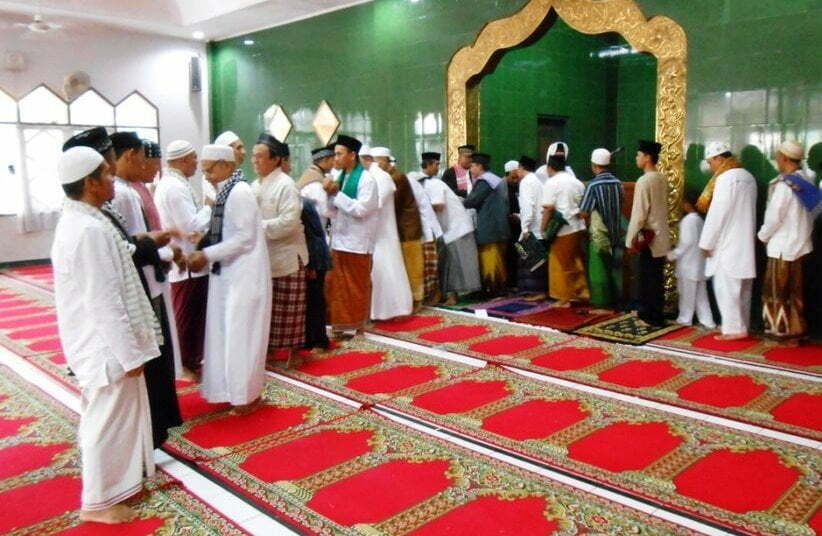Understanding Halal Bihalal: Its Meaning, Significance, and Islamic Basis
Halal Bihalal is a uniquely Indonesian tradition practiced by Muslims, especially after Eid al-Fitr, where families, friends, coworkers, and communities gather to forgive one another and strengthen social bonds. Although the term “halal bihalal” does not explicitly appear in the Qur’an or Hadith, the essence of the practice is rooted deeply in Islamic values of forgiveness, unity, and reconciliation.
What Does "Halal Bihalal" Mean?
The term halal bihalal comes from Arabic origin, with "halal" meaning permissible or lawful. In the context of this tradition, it is interpreted as “making things lawful again between one another” — meaning resolving disputes, forgiving past wrongs, and cleansing the heart.
In Indonesia, Halal Bihalal is usually held in the days or weeks following Eid al-Fitr. It involves face-to-face meetings where people greet each other with “Minal aidin wal faizin” and “Mohon maaf lahir dan batin,” symbolizing the mutual asking and granting of forgiveness.
The Islamic Basis of Halal Bihalal
Even though Halal Bihalal is not found in early Islamic texts by name, its spirit is aligned with core Islamic teachings. The Qur’an and Hadith emphasize forgiveness, reconciliation, and maintaining ties with others — especially after conflict or misunderstanding.
1. Forgiveness is a Virtue in Islam
QS. Al-A'raf: 199
“Take what is given freely, enjoin what is good, and turn away from the ignorant.”
This verse encourages forgiveness and avoiding confrontation. During Halal Bihalal, Muslims embody this spirit by letting go of grudges and misunderstandings.
QS. An-Nur: 22
“...Let them pardon and overlook. Would you not like that Allah should forgive you? And Allah is Forgiving and Merciful.”
This ayah reminds us that forgiving others is directly linked to earning Allah’s forgiveness. Halal Bihalal encourages this by opening hearts to reconciliation.
2. Maintaining Brotherhood
QS. Al-Hujurat: 10
“Indeed the believers are brothers, so make settlement between your brothers. And fear Allah that you may receive mercy.”
This verse explicitly instructs Muslims to resolve disputes among themselves — a practice core to Halal Bihalal.
Hadiths Supporting the Concept of Halal Bihalal
HR. Bukhari dan Muslim
“It is not permissible for a Muslim to forsake his brother for more than three nights...”
This hadith emphasizes the importance of reconciliation after conflict. Halal Bihalal provides a structured opportunity for Muslims to reconnect and repair relationships.
HR. Tirmidzi
“Shall I not tell you what is better than the rank of fasting, prayer, and charity?” They said, “Yes.” The Prophet said, “Reconciling people, for enmity and discord destroy blessings.”
The Prophet ﷺ places reconciliation above acts of worship. Halal Bihalal serves as a vehicle for fulfilling this noble practice.
The Social Impact of Halal Bihalal
Beyond individual forgiveness, Halal Bihalal serves as a means of social cohesion. In a country as diverse as Indonesia, this tradition bridges cultural and social divides, allowing people to reconnect not only within families but also in work environments, schools, and government institutions.
Halal Bihalal in Modern Times
With changing times, Halal Bihalal has also gone digital. Especially during the pandemic, people have held virtual Halal Bihalal meetings via Zoom or social media. Despite the format change, the core message remains: to forgive, reconnect, and renew spiritual bonds with one another.
Conclusion
Halal Bihalal is a meaningful tradition that resonates with Islamic teachings of forgiveness, reconciliation, and brotherhood. Although it may have originated as a local Indonesian practice, its foundation is deeply rooted in Qur’anic and Prophetic values.
In a world increasingly divided by misunderstandings and conflict, Halal Bihalal offers a beautiful reminder of the Islamic emphasis on unity and mercy.

